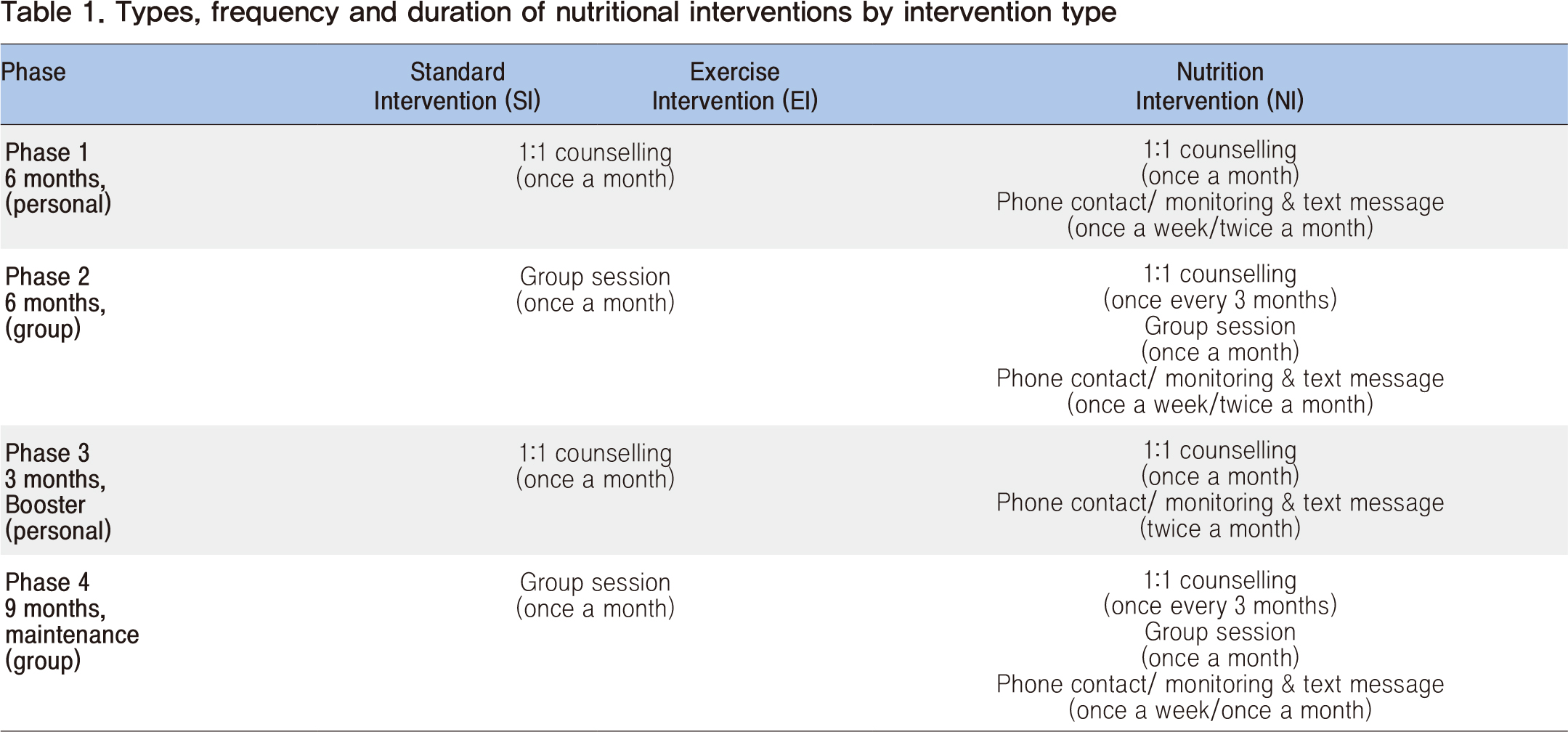contents area
Public Health Weekly Report
detail content area
- Date2019-10-02 21:23
- Update2019-11-19 18:18
- DivisionDepartment of Medical Nutrition, Kyung Hee University
- Tel043-719-7053
Effects of a 24-Month Nutritional Intervention in Obese Children and Adolescents
Oh Seulki,1 Lee So Yeong,1 Kim Jieun,2 Lim Hyunjung1,2
1Department of Medical Nutrition, Graduate School of East-West Medical Science, Kyung Hee University
2Research Institute of Medical Nutrition, Kyung Hee University
Childhood and adolescent obesity affect an individual's later life and health. Multidisciplinary and intense interventions are required for weight control in severely obese children and adolescents. Nutritional management has been recommended as a key factor in previous studies. In this study, a long-term nutritional intervention program was implemented for children and adolescents with severe obesity for 24 months. A total of 109 subjects (6 to 17 years of age, body mass index (BMI) ≥ 97th percentile as age-sex) finished the study per protocol. Subjects were divided into Standard Intervention (SI), Exercise Intervention (EI) and Nutrition Intervention (NI) according to the study’s intervention methods and each group was trained separately. According to the results, the total energy intake decreased in the three intervention groups after 24 months of intervention. Particularly, carbohydrate intake was decreased in the NI group, while protein intake was maintained after the highest decrease at 6 months. For eating behaviors, the frequency of snack consumption was less in the NI group than those of the two other groups. The highest frequency of daily vegetable intake was observed in the NI group compared to the two other groups. The assessment results of nutrition problems through NCP in the NI group showed that nutrition intake problems were reduced after 24 months of intervention. Group sessions, 1:1 counseling, and individualized intensive nutritional interventions for 24 months resulted in significant changes in macronutrient intake and eating habits in severely obese children and adolescents.
This study is meaningful in that it can be centrally managed separately and individually by constructing various intervention programs, and it can be implemented as a basic model of the Korean severe obesity management program in the future.
Keywords: severe obesity, childhood obesity, nutrition intervention, eating habits




 This public work may be used under the terms of the public interest source + commercial use prohibition + nonrepudiation conditions
This public work may be used under the terms of the public interest source + commercial use prohibition + nonrepudiation conditions